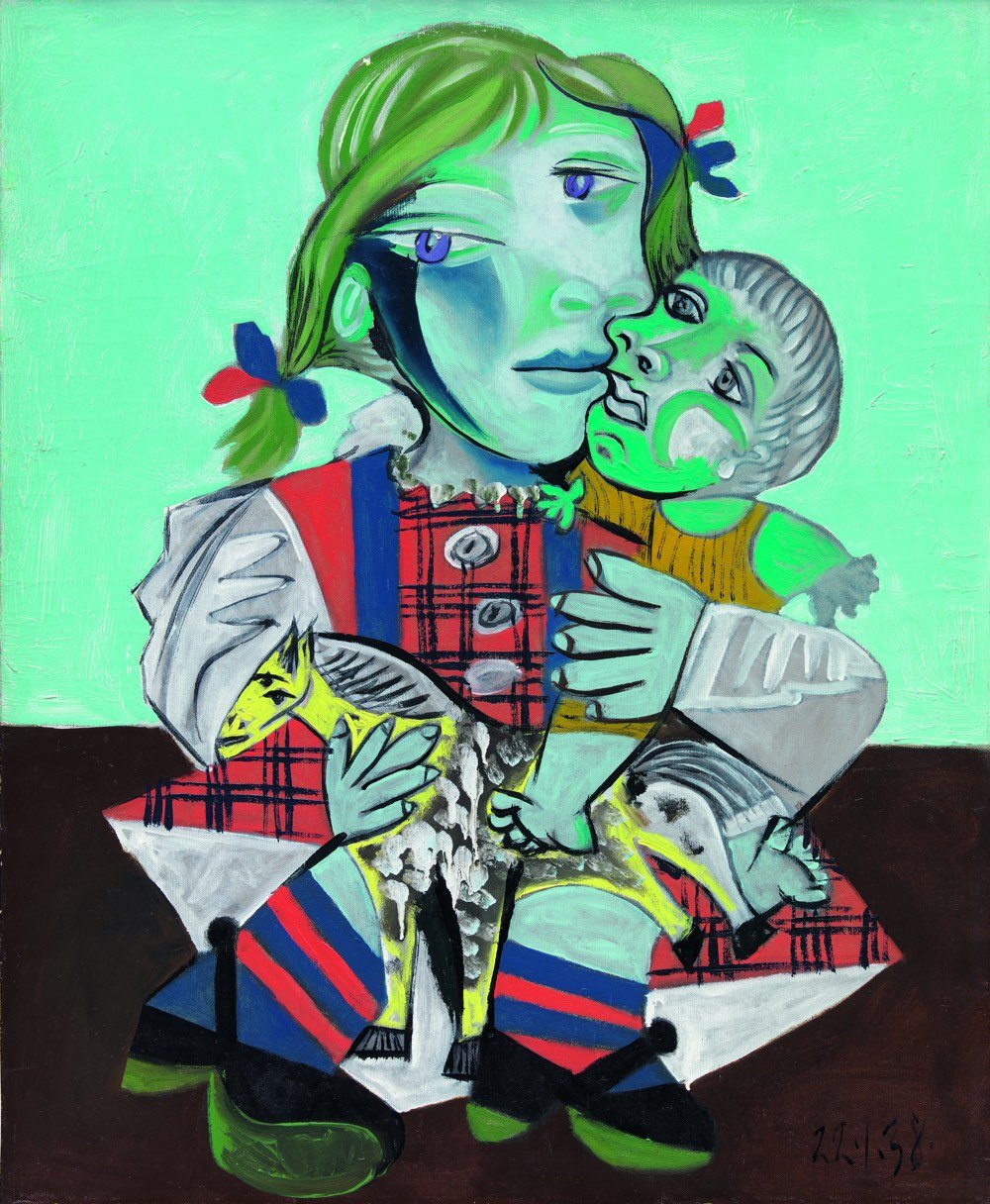“How Picasso Bled the Women in His Life for Art”

From Cody Delistraty in the Paris Review, a timely article on Pablo Picasso, his artwork, and how he treated the women in his life (spoiler alert: quite poorly).
Sixteen years ago, Marina Picasso, one of Pablo Picasso’s granddaughters, became the first family member to go public about how much her family had suffered under the artist’s narcissism. “No one in my family ever managed to escape from the stranglehold of this genius,” she wrote in her memoir, Picasso: My Grandfather. “He needed blood to sign each of his paintings: my father’s blood, my brother’s, my mother’s, my grandmother’s, and mine. He needed the blood of those who loved him.”
After Jacqueline Roque, Picasso’s second wife, barred much of the family from the artist’s funeral, the family fell fully to pieces: Pablito, Picasso’s grandson, drank a bottle of bleach and died; Paulo, Picasso’s son, died of deadly alcoholism born of depression. Marie-Therese Walter, Picasso’s young lover between his first wife, Olga Khokhlova, and his next mistress, Dora Maar, later hanged herself; even Roque eventually fatally shot herself.”Women are machines for suffering,” Picasso told Francoise Gilot, his mistress after Maar. After they embarked on their affair when he was sixty-one and she was twenty-one, he warned Gilot of his feelings once more: “For me there are only two kinds of women: goddesses and doormats.”
At the same time, his granddaughter has curated a show in Paris of Picasso’s art celebrating his relationship with his daughter Maya.
Diana Widmaier-Picasso, who is the daughter of Maya Widmaier-Picasso and Pierre Widmaier, a shipping magnate, and the granddaughter of Picasso and Marie-Therese, curated the exhibition. She is well aware of the usual misanthropic, misogynistic characterizations of Picasso. “He’s a man of metamorphoses,” she tells me carefully in Paris, a few days before the vernissage of her exhibition. “A complex person to grasp.”
When I was in Paris recently, I went to the Picasso Museum, where one of the exhibitions showcased his art from 1932, the artist’s “année érotique”. The Guardian described the show thusly:
Achim Borchardt-Hume, the gallery’s director of exhibitions and co-curator of the 2018 show, said the challenge facing curators was: “How can you get close to Picasso as an artist and a person? How can you get beyond the myth?”
Their answer was to focus on one period in Picasso’s long life. They chose 1932, a time called Picasso’s “year of wonders”.
It was a year when he cemented his superstar status as the world’s most influential living artist, producing some of his greatest works of art and staging his first retrospective, which he curated. It was also a year when his passion for Walter almost boiled over.
Picasso was 45 when, in 1927, he spotted the 17-year-old Walter as she exited a Paris Metro station. He approached her, grabbed her arm and declared: “I’m Picasso! You and I are going to do great things together.”
At this point, the quality of the art is undeniable but so too is Picasso’s treatment of women: he beat them, verbally and emotionally abused them, cheated endlessly on his wives, and entered into at least one sexual relationship with a girl under the age of consent (though with the permission of her parents it seems). He chewed women up for his art and then left them to die, literally. A small aspect of all of the allegations that have come out recently (Weinstein, Spacey, Louis CK, Roy Moore, Matthew Weiner, Charlie Sheen, Jeffrey Tambor, Dustin Hoffman, Leon Wieseltier, and — never forget! — fucking Trump) is the collective realization (mostly on the part of men…women have been aware) that not only has massive chunks of our culture been created by specific men who abuse women but also that so-called “Western culture” in its entirety has been marked and in many ways defined by systemic and institutionalized misogyny that has chewed up women for art and discarded them en masse. Never mind your fave is problematic…the whole damn culture is problematic. This aspect of the creation of culture has been largely written out of history, but going forward, it’s going to be important to write it back in.





Stay Connected